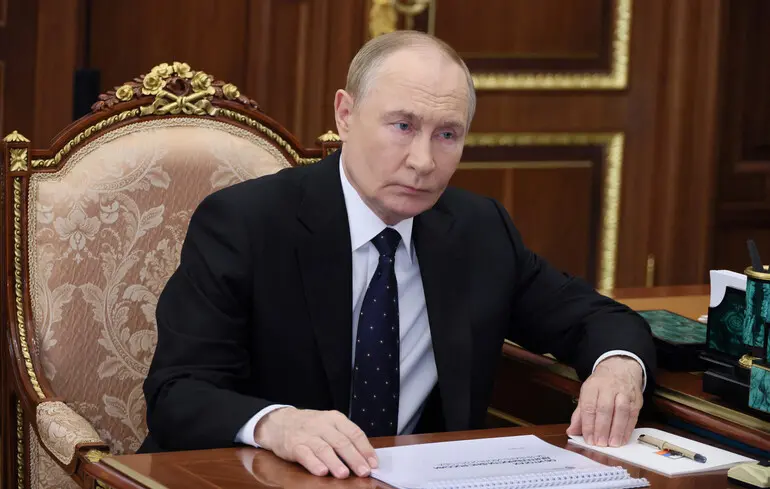External Forces Disrupt Putin’s Long-term Plans in Ukraine — Analyzing a New Strategic Confrontation

The ongoing conflict in eastern Ukraine, which has lasted over three years, is entering a new exhausting phase cloaked in uncertainties and challenges for both sides.
While it initially seemed that neither Ukraine nor Russia was close to victory or defeat, experts observe that the Kremlin is shifting its tactics and strategic approach.
Unlike the early ambitions of swiftly capturing Kyiv or rapidly changing the Ukrainian leadership, Moscow now focuses on prolonged endurance and exhaustion of the enemy through sustained conflict.According to analysts, Russia is confident that even if full victory remains elusive, defeat is impossible.
It possesses sufficient resources and a flexible economy to continue fighting, simultaneously draining Ukrainian and Western capacity faster than its own.
The West faces a pressing challenge to adapt its policies; otherwise, there is a risk of unintentionally favoring the Kremlin’s strategy.Senior policy advisor from the Tony Blair Institute, Dan Slatt, emphasizes that time has become a crucial battleground in this war.
Putin has failed to achieve his initial goals — there was no swift blow to Kyiv nor a swift change of government — but this does not imply surrender.
Ukraine has endured, despite heavy trials and losses, maintaining resilience and national identity.Peace negotiations remain a distant prospect, yet they are still possible.
Moscow refuses Ukraine’s condition of ceasefire as a basis for dialogue, insisting on maintaining its positions and continuing its exhausting tactics.
The analysis indicates that Moscow is no longer aiming for rapid territorial gains but relies on long-term exhaustion of Ukraine and its Western allies.However, experts warn of increasing pressure on Russian society, already strained by economic difficulties — slowing growth, rising inflation, and higher unemployment, compounded by harsh sanctions.
They project that in the near future, Russia may resort to further mobilization, though politically such steps could become problematic.Another critical issue concerns the role of European countries, which are cautiously providing aid to Ukraine while avoiding escalation.
Meanwhile, Putin calculates that Ukraine will collapse under resource shortages and fatigue, and the West will not be able to sustain its support.
This strategy of attrition remains effective only as long as it is not countered by substantial, long-term aid.Experts highlight the necessity for Ukraine to secure not only military support but also comprehensive security guarantees and resources for prolonged resistance — advanced ammunition, modern equipment, fighting vehicles, and drones for intelligence and strikes.
Continued long-term support from allies could enable Kyiv to regain initiative and push Russian troops out of occupied territories.Finally, analysts emphasize that European leaders have laid the groundwork for coordinated actions for peace and stability in Ukraine.
Leveraging these efforts effectively could create a unified strategy, shifting the balance of power in favor of Ukraine and ensuring its sovereignty.

